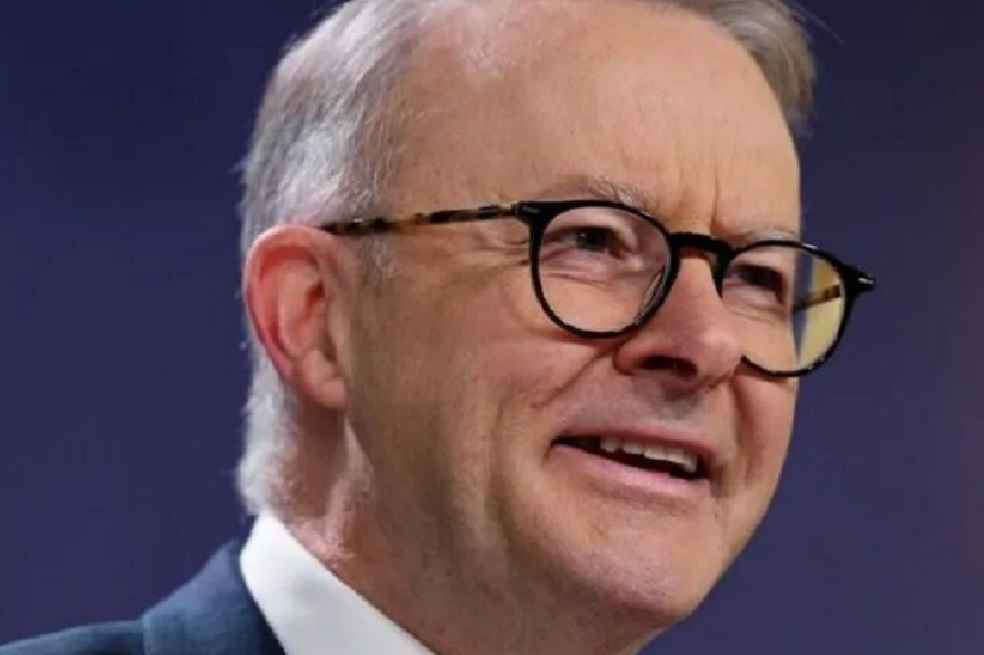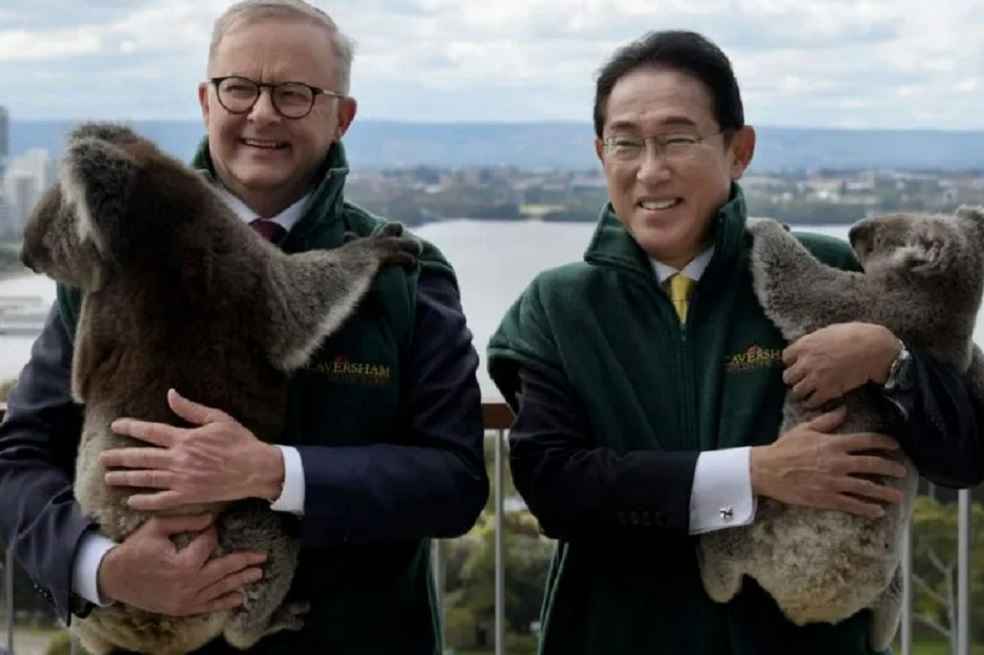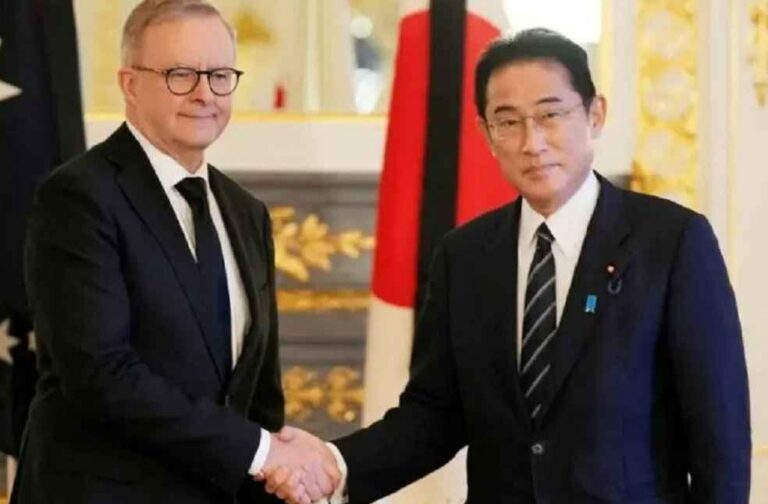Sydney, Australia: Japanese Prime Minister Mr. Fumio Kishida and his Australian counterpart, Mr. Anthony Albanese have agreed to strengthen their bilateral security ties as China looks to exert more control in the Asia-Pacific.
As a response to the drastically changing regional security environment, the two countries signed a security cooperation agreement at the annual Australia-Japan Leaders’ Meeting, amending a 2007 pact.
“The level of interaction which we have reflects very much the special strategic partnership that Australia and Japan have. We two countries really matter to each other now more than ever,” Mr. Albanese remarked.

The topics of climate change and a regional transition to net zero carbon emissions, as well as increased investment in clean energy technologies, are also expected to be covered by the two leaders.
Mr. Kishida stated in his opening remarks that in “an increasingly severe strategic environment,” the two countries have been working to create a free and open Indo-Pacific.
“Through this experience, the bonds that tie Japan and Australia together have become much stronger. And our two countries have become the central pillar of cooperation among like-minded countries,” Mr. Kishida later added.

Japan receives a significant amount of iron ore, coal, and gas from Australia. The meeting was held in Perth, which is 3,700 kilometers (2,300 miles) away from Canberra. The event highlighted Western Australia’s significance in addressing Japan’s energy needs, including those for renewable energy. The state is a significant supplier of wheat and beef to Japan.
In reaction to China’s expanding military might in the region, Canberra and Tokyo recently strengthened their security relations. Kishida and Albanese promised to work toward a new bilateral security cooperation statement in May.
Security cooperation was described in a prior joint statement in relation to issues including counterterrorism and North Korea’s missile and nuclear weapons programs. In 2014, the two nations upgraded their partnership to a “Special Strategic Partnership.”



